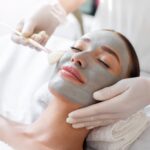A new frontier in acne management
Acne, a persistent and widespread skin condition, affects a staggering 85 percent of people at some point in their lives. Traditionally viewed as an insurmountable challenge, new research is shedding light on the underlying causes of acne, offering hope for natural and effective management. One of the key breakthroughs in this field is the recognition of the skin microbiome’s central role in acne development and the potential of topical probiotics in restoring skin health.
[ihc-hide-content ihc_mb_type=”show” ihc_mb_who=”2,4,6,7,5″ ihc_mb_template=”3″ ]
Understanding the Core Issue
At its core, acne is a visible manifestation of an imbalanced skin microbiome. The skin’s microflora, consisting of a delicate community of bacteria, plays a pivotal role in determining the presence or absence of acne. These microorganisms act as the body’s first line of defense against harmful bacteria, including those responsible for acne outbreaks.
Unmasking the Top Culprits
Researchers have identified four primary factors contributing to the development and persistence of acne:
1. Sebum Overproduction: Overactive sebaceous glands lead to excessive sebum secretion, a key factor in acne lesion development.
2. Keratinocyte Proliferation: An overgrowth of keratinocytes within hair follicles can create a protective barrier that contributes to acne formation.
3. Proliferation of Harmful Bacteria: Certain bacterial strains, such as Propionibacterium acnes (P. acnes), not typically found on the skin, can trigger acne outbreaks.
4. Inflammatory Responses: The skin’s microbiome can induce inflammation, aggravating acne, especially when there is an overgrowth of P. acnes, which stimulates inflammatory reactions.
The Skin Microbiome-Acne Connection
Recent research has unveiled striking differences in the skin microbiome of individuals with acne compared to those with healthy skin. These findings underscore the pivotal role of the skin microbiome in acne development.
Harnessing the Power of Topical Live Probiotics
A promising solution for acne management lies in topical live probiotics. These innovative products have demonstrated the ability to restore balance to the skin microbiome. By reintroducing beneficial bacterial strains that are depleted in acne-prone skin, these probiotics counteract strains responsible for breakouts. Importantly, they do so without compromising the beneficial microflora.
Clinical trials have revealed remarkable results with the application of probiotics to the skin. For instance, Streptococcus thermophiles, applied for just seven days, increased ceramide production. This not only balanced skin moisture levels but also exhibited direct antibacterial activity against P. acnes. In a two-month pilot study involving ceramides, there was an astounding 89 percent reduction in acne pustules and decreased P. acnes counts.
The future of acne management looks promising, with an increasing focus on the skin microbiome and topical live probiotics. As we continue to unravel the mysteries of acne, natural solutions that work in harmony with the skin microbiome are taking center stage. With a deeper understanding of the underlying causes of acne and the power of topical probiotics, we are entering a new era in skin health —one that offers hope and effective solutions for those grappling with this age-old skin concern.
[/ihc-hide-content]













